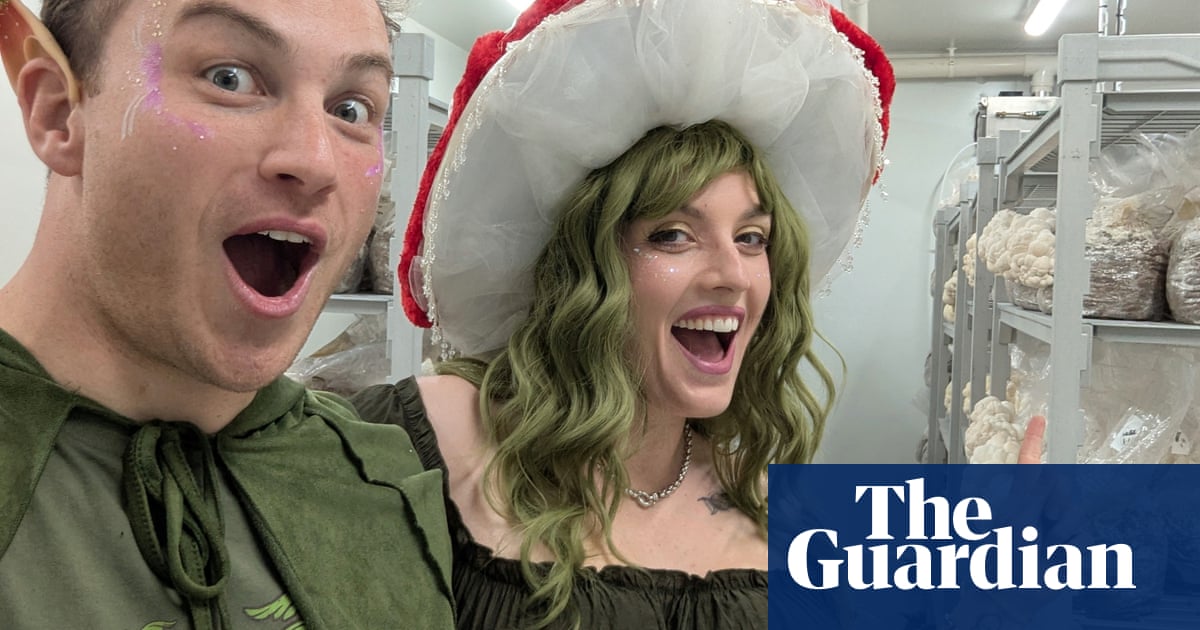When Adelle Stripe was 23, she got a job working on a sex chat line. She had answered an ad looking for women with no qualifications save for a clear voice and a self-assured manner. Callers would pay 50p a minute to speak to girls working in the small hours in the attic of a tatty office building. On arrival, Stripe observed staff at partitioned desks in jeans, jumpers and no makeup “fake laughing [on the phone] as though they are hosting the world’s greatest party”, along with the “sickly and overpowering” scent of Exclamation. That was the perfume worn by the manager, Viv – so strong it made everyone’s eyes water.
Stripe’s foray into the world of phone sex features in Base Notes, a literary voyage through her formative moments and the perfumes – some pleasant, some less so – she encountered along the way. Stripe is the author of Black Teeth and a Brilliant Smile, a novel based on the life of playwright and screenwriter Andrea Dunbar; Ten Thousand Apologies, a tale of rock’n’roll excess co-written with Lias Saoudi of Fat White Family; as well as several volumes of poetry.
This is her first memoir and it is written in the second person, giving the impression of the present-day Stripe observing her younger self, a working-class girl from the north, from the more secure vantage point of middle age. The theme of each chapter is a perfume worn by family, friends, work colleagues or by Stripe herself. In the seaside ballrooms where her hair stylist mother took part in hairdressing competitions, Giorgio Beverly Hills was the fragrance of choice. Stripe’s pal Debs, who worked with her dressing windows in an Edinburgh department store, favoured Thierry Mugler’s Angel, although she wasn’t the only one in its thrall; in town, “the sweaty walls of every nightclub drip with it”. Elsewhere, Jean Paul Gaultier’s Le Male, Fabergé Brut, The Body Shop’s Dewberry and Impulse body mist feature. For Stripe, perfume is entwined with memory, each one helping to draw out aspects of her former self, even though the recollections aren’t always fond. The book’s epigraph is taken, amusingly, from the song Perfume by Sparks: “The olfactory sense is the sense that most strongly evokes memories of the past. Well, screw the past!”
Growing up, Stripe was a quiet girl with a rich interior life. Her mother was an extrovert who couldn’t relate to her seemingly sullen daughter. “‘Why can’t you be more like the salon girls?’ she asks. ‘Bubbly and loud. At the very least, normal … I may love you but I don’t have to like you.’” None of this seemed to dampen her adventurous spirit, which bordered on reckless when she visited New York by herself. There she spent a terrifying night at the apartment of a stranger who seemed like a good Samaritan until she caught him spying on her in the shower. She later moved to London where she picked up various dead-end jobs, partied hard and drank like a fish. A low point came when she agreed to give an interview to a documentary film crew making a TV reality series, serving up her darkest secrets for public consumption to the horror of her family.
Bleakness and humour go hand in hand in Base Notes, never more so than in Stripe’s unflinching account of her mother’s decline and death after collapsing on a cruise with a septic hernia following a champagne-and-lobster banquet – “her own version of the last supper”. This is a book that, rather than opting for blow-by-blow autobiography, provides candid and compelling snapshots of a life, much of which is spent in survival mode. While the dialogue captures the complexities of friendship and family dynamics, the writing really comes to life through Stripe’s child’s-eye observations. Whether earwigging on her grandmother’s bible meetings, or reporting on goings-on in her mother’s salon, the scenes are richly observed and often laced with sardonic humour
If, on occasion, the olfactory theme feels laboured, it comes together in the final chapter as Stripe tries making her own perfume in Grasse, France, as a tribute to her mother. She selects mandarin, English breakfast tea, lychees and lotus for a fragrance that she calls Lune Rose. On being handed the bottle, she is told not to open it for at least six weeks. When she finally does, it is not the “precious concoction of your imagination” but a scent redolent of a “cheap copy bought for £3 in the middle aisle of Aldi”. Sometimes, she concludes, “the best laid plans don’t always work out.”
after newsletter promotion

 3 months ago
50
3 months ago
50

















































